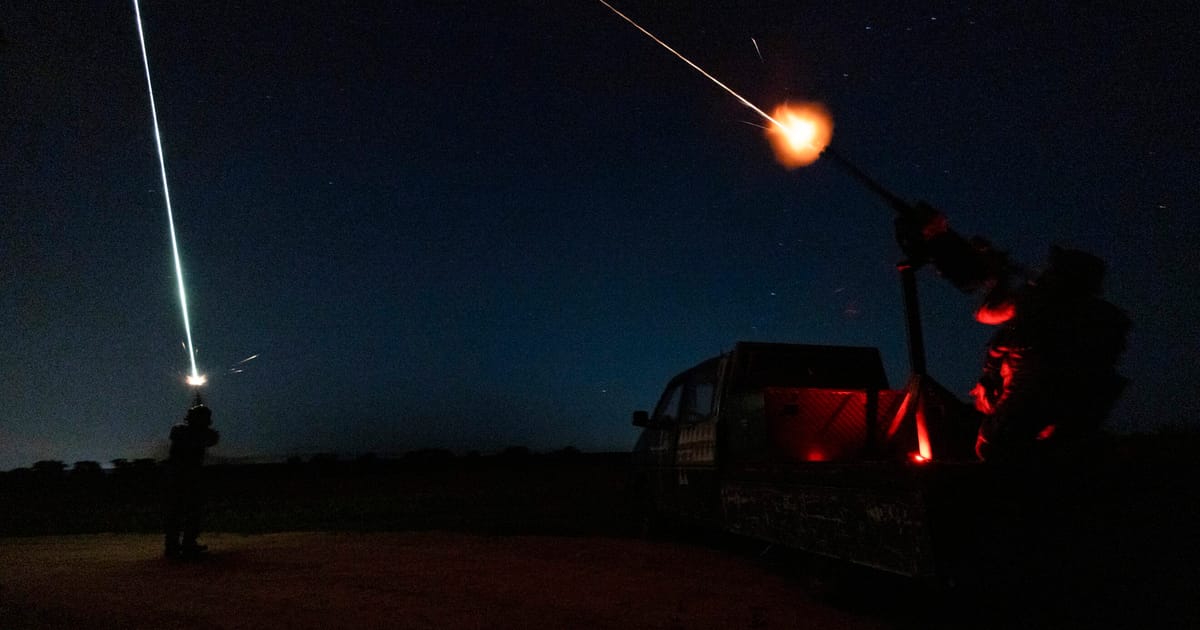

In a striking demonstration of resilience and determination, Ukraine has recently faced yet another formidable challenge. Overnight, Russia launched an extensive barrage of missiles and drones against Ukrainian targets, marking the largest drone assault since the conflict began. The attack involved over 740 explosive-carrying drones and missiles, presenting a significant test for the Ukrainian defense systems. Yet, amidst the chaos, the nation remains steadfast, engaging diplomatically and seeking international support to strengthen its defenses.
The recent escalation coincides with ongoing debates in Washington, D.C., surrounding U.S. military assistance to Ukraine. Internal discussions have unfolded regarding the cessation of certain arms transfers, heightening the stakes as Ukraine’s battle for sovereignty continues unabated. Amidst these developments, the role of advanced U.S. defense systems, like the Patriot missiles capable of intercepting such attacks, comes to the fore, highlighting the critical nature of international support in the conflict.
Volodymyr Zelenskyy, Ukraine’s president, conveyed a message of perseverance to his nation. He emphasized that despite the record number of drones and missile strikes—728 drones in total, complemented by 13 targeted missile attacks—Ukraine’s resolve remains unbroken. Zelenskyy recognized the complexities of the situation, urging international counterparts to perceive the broader implications of these aggressions and to bolster their support for Ukraine.
In a speech addressing this scenario, European Commission President Ursula von der Leyen highlighted the persistent threat Russia poses. Speaking to members of the European Parliament, she underscored the relentless nature of the conflict, reiterating Europe’s commitment to standing by Ukraine. Her statement illuminated the ongoing international dialogues focused on ensuring regional stability and security, urging nations to continue their collaborative efforts in response to evolving threats.
This event arrives on the heels of recent critiques by former U.S. President Donald Trump concerning Vladimir Putin’s actions. While this commentary reverberates through political circles, the immediate concerns remain centered on delivering practical support to mitigate the tangible threats manifesting in the present conflict. As diplomatic channels remain open, so too does the possibility for enhanced multilateral cooperation, seeking both short-term resolutions to immediate crises and long-term strategies for enduring peace.
It is crucial to note the exceptional resilience demonstrated by Ukraine’s air defense systems and military personnel during such challenging times. Their efforts to protect key infrastructures and civilian populations while adapting to rapidly transforming combat scenarios reflect not only tactical proficiency but also the tenacity and spirit of a nation at the forefront of safeguarding its future.
Moving forward, the international community faces a dual imperative: to address the humanitarian and security concerns presented by ongoing hostilities, and to navigate the geopolitical dynamics that continue to influence regional stability. As the situation evolves, the steadfastness of Ukraine, bolstered by international alliances and a commitment to peace, remains a key factor in shaping a hopeful path forward.
In this complex dynamic, the enduring quest for peace and stability requires a mindful and nuanced approach, championing dialogue over discord and unity over division. By fostering understanding and empathy, stakeholders can contribute to diffusing tensions, ultimately aspiring towards a harmonious resolution that honors the dignity and aspirations of all those affected by the conflict.
Source: {link}
